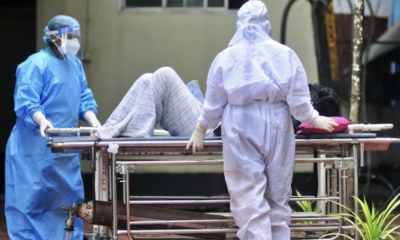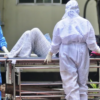COVID19
Wealthy countries should share excess COVID-19 vaccine doses to close $19 billion funding gap: WHO Special Envoy
Suppressing the pandemic that advancing in India and beyond depends on persuading rich nations to share excess COVID-19 vaccine doses and help close a $19 billion funding gap, says Carl Bildt, the new special envoy to WHO.
As India grapples with a deadly surge among its population of 1.4 billion, worries are growing for many other spots all over the world. Despite noted declines in the developed world, more than 600,000 new COVID cases are reported globally each day, as stubborn epidemics in countries like Columbia, Brazil and Malaysia burn on.
An independent review of the international COVID-19 response has also called for Group of Seven countries to commit 60% of the money needed this year. The report urged high-income nations to provide more than two billion doses to poorer regions by mid-2022. Bildt said the risk is that if people in the United Kingdom, European Union or the United States think the worst is over, the attention will shift. “The worst isn’t over,” he said. “As long as this is a pandemic that is spreading like wildfire in parts of the world, we are not safe.”
According to the Duke Global Health Innovation Centre in Durham, North Carolina, some wealthy countries have obtained far more vaccine than they need, and advocates say more should be shared. High-income countries have purchased almost five billion doses, middle-income nations have secured about 2.2 billion doses and poorer regions hold about 270 million.
The US is preparing to vaccinate middle- and high-school students, a relatively low-risk group, before the start of summer camps and the next school year. COVID deaths could drop to as low as 1,500 per week by June 5, as per the Centers for Disease Control and Prevention forecast. The United Kingdom reported zero COVID deaths in its Tuesday update, and the government is clearing the way for people to hug and meet indoors at pubs and restaurants.
Ellen ‘t Hoen, director of Medicines Law & Policy, a research group based in the Netherlands, said waiving patents on vaccines is promising but won’t address immediate needs for supply. “Anything that exists today should really go to places where the crisis is the most serious,” she explained. “Maybe vaccinating teenagers in California shouldn’t be the priority at this time.”
Also Read: Second COVID-19 wave crushed India’s strong recovery after 2020 economic downturn
Robert Yates, executive director of the Centre for Universal Health at Chatham House, believes more international coordination is required to fix the inefficiencies and inequities. “We are not in a good shape here. Vaccines should be going to the countries and the age groups most in need, but that’s not happening.” Global health officals stress that everyone is vulnerable if the virus keeps advancing, increasing the risk of concerning variants and prolonging the pandemic. Getting health workers immunized in developing nations should be the focus.











































Pingback: UAE Widens Travel Ban Leaving Many South Asians Unable to Return to Country | The Plunge Daily
Pingback: The Supreme Court today stated that it will direct Delhi NCR authorities to set up community kitchens for migrant workers.